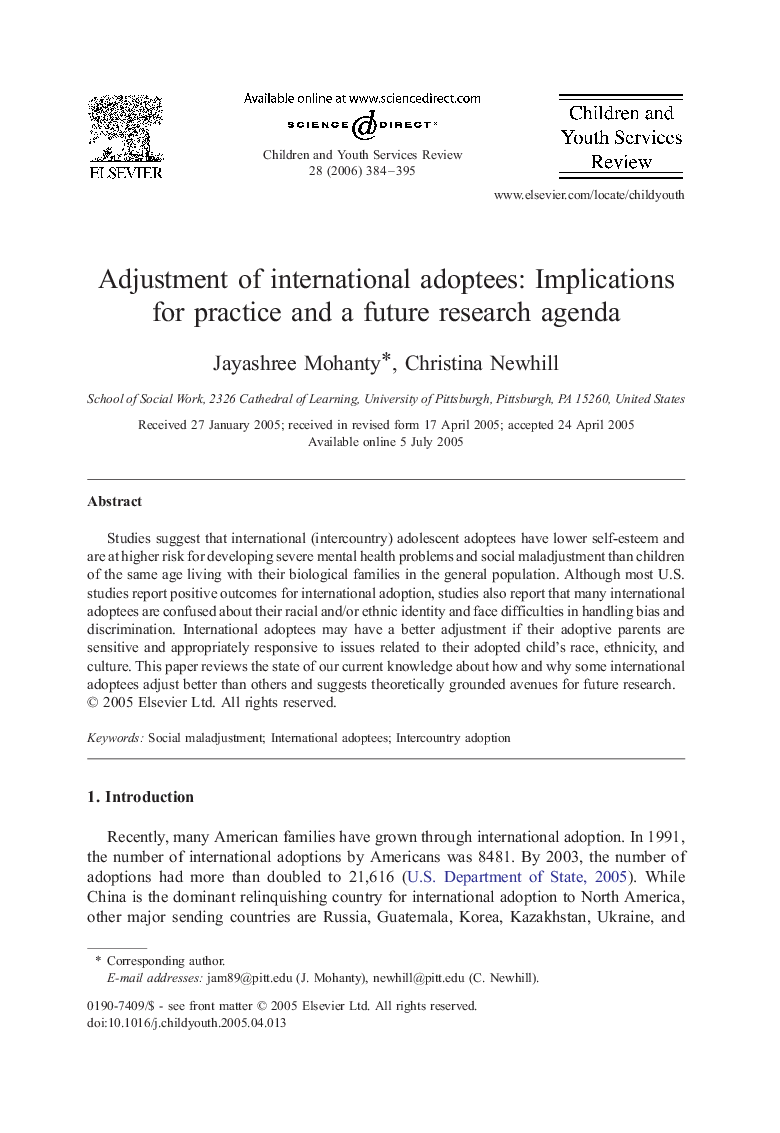| Article ID | Journal | Published Year | Pages | File Type |
|---|---|---|---|---|
| 347374 | Children and Youth Services Review | 2006 | 12 Pages |
Studies suggest that international (intercountry) adolescent adoptees have lower self-esteem and are at higher risk for developing severe mental health problems and social maladjustment than children of the same age living with their biological families in the general population. Although most U.S. studies report positive outcomes for international adoption, studies also report that many international adoptees are confused about their racial and/or ethnic identity and face difficulties in handling bias and discrimination. International adoptees may have a better adjustment if their adoptive parents are sensitive and appropriately responsive to issues related to their adopted child's race, ethnicity, and culture. This paper reviews the state of our current knowledge about how and why some international adoptees adjust better than others and suggests theoretically grounded avenues for future research.
